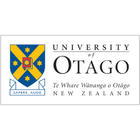University
University of Otago
Master of Science (MSc) in Geology
This course is available
On-Campus
Level of Study
Master's Degree
Duration
1 year
Next start date
Expected Feb 2025
Campus
University of Otago
Summary
The Master of Science (MSc) is a two-year degree which encompasses both coursework and research. The first year involves mainly coursework and preliminary research preparation. Students will have the opportunity to contribute to existing fields of research, or to begin to develop new areas.
Why study Geology?
Geology provides the foundations to understand the future of society: from our food and water, buildings and clothing, through to the very land on which we stand. If you are motivated by global challenges such as climate change, sustainability, natural hazards, energy and infrastructure, studying Geology will give you the skill-set required to make a difference in the world.
The solutions to today’s great challenges can be solved by studying the world around us. Geologists explore the great outdoors to learn how Earth formed and is continuously changing.
Be part of a dynamic and friendly department that commits to excellence in teaching and research and welcomes you as part of the community.
What will I learn?
A Geology degree will open your eyes to the dynamic processes that occur on Earth and other planets.
You will learn how to read and interpret the history of Earth and its lifeforms by studying rocks, minerals, magma, fossils, ice and water.
You will learn how Earth’s interior interacts with the oceans and atmosphere to regulate global change, and you will become a master of critical observation and interpretation at molecular to plate tectonic scales.
Career opportunities
A degree in Geology unlocks a wealth of possibilities. The data-handling, problem- solving, and teamwork skills that you learn in Geology provide an opportunity to contribute to:
Earth processes and history
Earth resources
planetary and Space Sciences
palaeontology and the history of life
oceanography and Antarctic research
natural hazard assessment
geospatial analysis
environmental protection and sustainability
renewable energy
teaching and mentoring
science policy and advocacy
Duration of the Programme
A candidate achieving the degree by papers and a thesis shall normally follow a programme for the equivalent of not less than two years of full-time study and not more than three years of full-time study, and a candidate achieving the degree by thesis alone shall normally follow a programme of study for the equivalent of not less than one year of full-time study and not more than two years of full-time study. Exceptions shall be permitted only with the approval of the Pro-Vice-Chancellor (Sciences).
Intake: Anytime for thesis-only option.
Entry criteria
Admission to the programme shall be subject to the approval of the Pro-Vice-Chancellor (Sciences).
Every applicant must either
- be a graduate with an average grade of at least B for the appropriate 300-level papers, or
- have alternative qualifications or experience acceptable to the Pro-Vice-Chancellor (Sciences).
An applicant seeking admission to the thesis-only option of the programme (see regulation 2(c) below) on the basis of the degree of Bachelor of Science with Honours or the Postgraduate Diploma in Science or equivalent must have achieved a grade of at least B+ for the research report, thesis preparation, or dissertation requirement of the qualification concerned.
In considering an applicant's qualifications, regard will be had to the detail of the course of study followed to gain the qualification, as well as the applicant's performance in the programme.
English language requirements
- IELTS (Academic module) (including IELTS Online) - Overall score of 6.5, no individual band below 6.0.
- TOEFL iBT - Overall score of 90 and a writing score of 21.
- C1 Advanced (previously Cambridge English: Advanced (CAE)) or C2 Proficiency (previously Cambridge English Proficiency (CPE)) - Overall score of 176 (with no individual band below 169).
- Pearson Test of English (PTE) Academic - Overall score of 58 with no communicative skills score below 50.
- Language Cert - International ESOL: C1 Expert (LRWS) with a high pass overall and no less than a pass in each skill OR C2 Mastery (LRWS) with a pass overall and no less than a pass in each skill.
- NZCEL - NZCEL 5 Academic endorsement
- English New Zealand's Accredited Pathway Assessment - Assessment Level 3 (with no skill lower than Level 2).
- APIEL Advanced Placement International English Language Examination - Grade 4 or higher.
Studying in NZ
Disclaimer